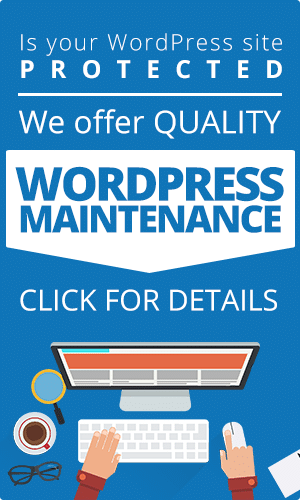WordPress is one of the most popular content management systems in the world. It powers over 40% of websites on the internet. However, like any other software, WordPress requires regular maintenance to function at its best. In this article, we will cover the top 10 WordPress maintenance tasks that you need to do regularly to ensure that your website is running smoothly.
Before we dive into the top 10 WordPress maintenance tasks, let’s first define what WordPress maintenance is, and why it’s important. WordPress maintenance refers to the tasks that you need to perform regularly to ensure that your website is secure, fast, and functioning correctly. Regular maintenance helps to prevent security breaches, site downtime, and poor website performance. By performing regular maintenance, you can ensure that your website visitors have the best user experience possible, which can help to increase engagement and conversions.
1. Backup Your WordPress Website
Backing up your WordPress website is one of the most important maintenance tasks that you need to do regularly. A backup is a copy of your website files and database that you can restore if something goes wrong. It’s important to choose a backup solution that fits your needs, and that you perform backups frequently. We recommend that you backup your website at least once a week, and test your backups to make sure they’re working correctly.
2. Update WordPress Core, Themes, and Plugins
WordPress regularly releases updates to its core software, themes, and plugins. These updates often include bug fixes, security patches, and new features. Updating your WordPress website is crucial to ensure that your website is secure, stable, and performs at its best. You should check for updates regularly and install them as soon as they become available. It’s also important to deactivate and delete any unused themes and plugins, as they can slow down your website and increase the risk of security breaches.
3. Check Website Security
Website security is a critical component of WordPress maintenance. Hackers are constantly looking for vulnerabilities in websites to exploit. To prevent security breaches, you should regularly monitor your website security, perform security scans, and install security plugins. You should also enforce strong passwords and implement two-factor authentication to increase security.
4. Optimize Website Performance
Website performance is a key factor in user experience. A slow website can increase bounce rates and decrease engagement. To optimize your website’s performance, you should test your website speed regularly, use caching plugins, minimize HTTP requests, and optimize images. These optimizations can help to improve your website’s load time and provide a better user experience.
5. Clean Up Your Database
Over time, your WordPress database can become cluttered with old data, post revisions, and spam comments. This clutter can slow down your website and increase the risk of security breaches. To keep your database clean, you should use tools for cleaning up the database, clear post revisions, remove unused tables, and delete spam comments and trash.
6. Fix Broken Links
Broken links can harm your website’s user experience and SEO. They can also decrease user engagement and increase bounce rates. To prevent broken links, you should use tools for identifying broken links, find and fix broken links, and update internal links regularly.
7. Improve SEO
Search engine optimization (SEO) is the process of improving your website’s visibility in search engine results pages. SEO can help to increase website traffic and improve user engagement. To improve your website’s SEO, you should check SEO regularly, use SEO plugins, optimize content for search engines, and optimize images for search engines.
8. Monitor Website Uptime
Website downtime can harm your website’s reputation and user experience. To prevent downtime, you should regularly monitor your website uptime, use uptime monitoring services, and respond quickly to any downtime issues. This can help to ensure that your website is available to visitors when they need it.
9. Manage User Roles and Permissions
User roles and permissions are essential for managing your website’s content and access. To ensure that your website is secure and properly managed, you should regularly review user roles and permissions, assign appropriate roles and permissions, and remove any unnecessary or outdated roles.
10. Test Your Website
Testing your website is a crucial part of WordPress maintenance. It helps to ensure that your website is functioning correctly, and that visitors are having a positive user experience. To test your website, you should use tools for website testing, perform usability tests, and test website functionality regularly.
Conclusion
Performing regular WordPress maintenance tasks is crucial to ensure that your website is secure, stable, and performing at its best. By following the top 10 WordPress maintenance tasks listed in this article, you can help to prevent security breaches, website downtime, and poor website performance. Remember to back up your website regularly, update WordPress core, themes, and plugins, monitor website security, optimize website performance, clean up your database, fix broken links, improve SEO, monitor website uptime, manage user roles and permissions, and test your website regularly.
If you don’t have the time or expertise to perform regular WordPress maintenance tasks, consider using a professional WordPress maintenance service like Innovative Solutions Group to handle these tasks for you.
FAQs
Q: What is WordPress maintenance?
A: WordPress maintenance refers to the tasks that you need to perform regularly to ensure that your website is secure, fast, and functioning correctly.
Q: Why is WordPress maintenance important?
A: Regular WordPress maintenance helps to prevent security breaches, site downtime, and poor website performance. It also ensures that your website visitors have the best user experience possible, which can help to increase engagement and conversions.
Q: How often should I back up my WordPress website?
A: We recommend that you backup your website at least once a week.
Q: How often should I update my WordPress website?
A: You should check for updates regularly and install them as soon as they become available.
Q: Can I perform WordPress maintenance tasks myself?
A: Yes, you can perform WordPress maintenance tasks yourself, but if you don’t have the time or expertise, consider using a professional WordPress maintenance service to handle these tasks for you.






